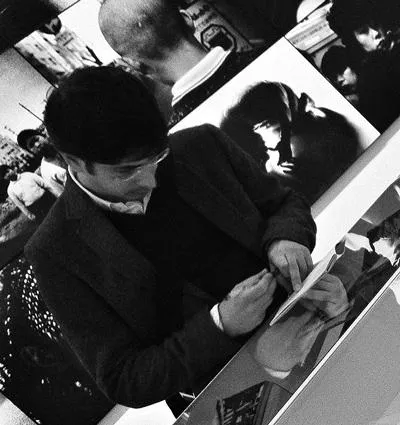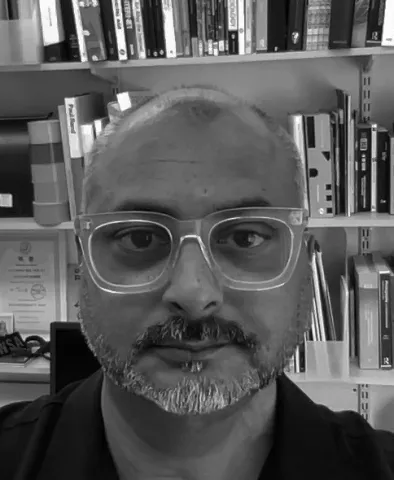Project overview
Electronic Life is a public research programme to advance the conversation about Creative Artificial Intelligence. Led by Professors Ed D'Souza and Sunil Manghani, the project draws together research streams in AI and Arts and Social Practice in Art. As its starting point, the project is situated at Tate Britain, as well as contributing to the Alan Turing Institute’s remit to broaden and deepen the public conversation and application of AI.
Framed around the investigators’ explicit AI and Arts research and social practice methodologies to offer both a critical understanding of our ‘electronic life’ and a means to advance new ideas, build capacity and greater capabilities for ‘makerly’ approaches engaging with and having a stake in present developments of artificial intelligence and new immersive media.
Acting as an open forum for experimentation and debate, Electronic Life offers a creative platform to enable hands-on enquiry with AI tools in the context of the art museum. It represents a collaboration between Winchester School of Art (University of Southampton), Tate Britain and Stability AI, with support from the Large-Scale Artificial Intelligence Open Network and the AI & Arts Interest Group at The Alan Turing Institute.
An initial pilot event, Beyond the Frame, was held as part of Tate’s Queer and Now programme in June 2023, which presented a public AI image-making workshop and artist talk. The workshop established a site for social practice and exchange: participants were invited to re-imagine and re-work selected artworks from Tate Britain’s newly re-hung collection using Stability AI’s ClipDrop AI image generation software. The broader Electronic Life programme (over the coming year) represents an initiative to broaden and deepen expertise, skills and capacity in the context of Galleries and Museums (including re-invigorating Tate’s use of its Taylor Digital Studio); attending to the ‘grand challenge’ of AI; attending to rapid technological change and creativity as part of supporting the development of the UK’s digital economic future; and working with the Tate’s Young Producers Collective, as well as focusing on working locally through these technologies with marginalised communities.
Over the mid- to long-term Electronic Life is set to extend internationally, working with partners in India (Kochi Biennale) and China (Digital Suzhou), establishing a sustained platform for future creative practices and helping to lead on the public conversation for AI and arts.
Framed around the investigators’ explicit AI and Arts research and social practice methodologies to offer both a critical understanding of our ‘electronic life’ and a means to advance new ideas, build capacity and greater capabilities for ‘makerly’ approaches engaging with and having a stake in present developments of artificial intelligence and new immersive media.
Acting as an open forum for experimentation and debate, Electronic Life offers a creative platform to enable hands-on enquiry with AI tools in the context of the art museum. It represents a collaboration between Winchester School of Art (University of Southampton), Tate Britain and Stability AI, with support from the Large-Scale Artificial Intelligence Open Network and the AI & Arts Interest Group at The Alan Turing Institute.
An initial pilot event, Beyond the Frame, was held as part of Tate’s Queer and Now programme in June 2023, which presented a public AI image-making workshop and artist talk. The workshop established a site for social practice and exchange: participants were invited to re-imagine and re-work selected artworks from Tate Britain’s newly re-hung collection using Stability AI’s ClipDrop AI image generation software. The broader Electronic Life programme (over the coming year) represents an initiative to broaden and deepen expertise, skills and capacity in the context of Galleries and Museums (including re-invigorating Tate’s use of its Taylor Digital Studio); attending to the ‘grand challenge’ of AI; attending to rapid technological change and creativity as part of supporting the development of the UK’s digital economic future; and working with the Tate’s Young Producers Collective, as well as focusing on working locally through these technologies with marginalised communities.
Over the mid- to long-term Electronic Life is set to extend internationally, working with partners in India (Kochi Biennale) and China (Digital Suzhou), establishing a sustained platform for future creative practices and helping to lead on the public conversation for AI and arts.

